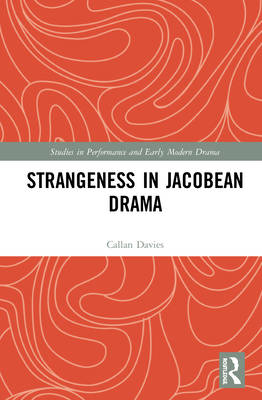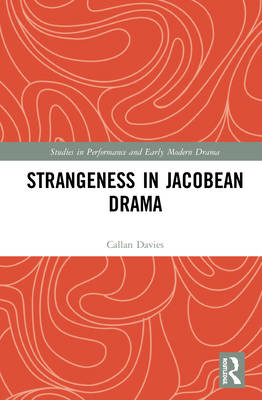
- Retrait gratuit dans votre magasin Club
- 7.000.000 titres dans notre catalogue
- Payer en toute sécurité
- Toujours un magasin près de chez vous
- Retrait gratuit dans votre magasin Club
- 7.000.0000 titres dans notre catalogue
- Payer en toute sécurité
- Toujours un magasin près de chez vous
Description
Callan Davies presents "strangeness" as a fresh critical paradigm for understanding the construction and performance of Jacobean drama--one that would have been deeply familiar to its playwrights and early audiences. This study brings together cultural analysis, philosophical enquiry, and the history of staged special effects to examine how preoccupation with the strange unites the verbal, visual, and philosophical elements of performance in works by Marston, Shakespeare, Middleton, Dekker, Heywood, and Beaumont and Fletcher.
Strangeness in Jacobean Drama therefore offers an alternative model for understanding this important period of English dramatic history that moves beyond categories such as "Shakespeare's late plays," "tragicomedy," or the home of cynical and bloodthirsty tragedies.
This book will be of great interest to students and scholars of early modern drama and philosophy, rhetorical studies, and the history of science and technology.
Spécifications
Parties prenantes
- Auteur(s) :
- Editeur:
Contenu
- Nombre de pages :
- 204
- Langue:
- Anglais
- Collection :
Caractéristiques
- EAN:
- 9780367500313
- Date de parution :
- 16-09-20
- Format:
- Livre relié
- Format numérique:
- Genaaid
- Dimensions :
- 155 mm x 236 mm
- Poids :
- 498 g

Les avis
Nous publions uniquement les avis qui respectent les conditions requises. Consultez nos conditions pour les avis.






